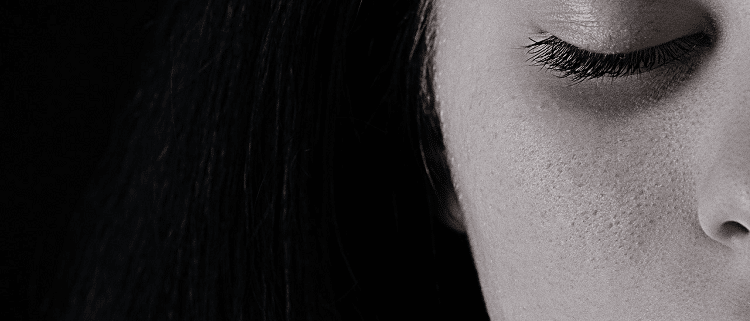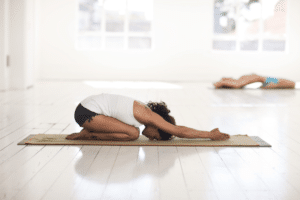Getting Anxious Over Anxiety Depression?
Depression is a common mental health disorder. Depression is when you feel sad and hopeless for a long time, and you can’t enjoy things that used to make you happy. You may also lose interest in things that were once fun and no longer feel any joy from them. Depression can be hard to diagnose because it looks different in each person, but there are some common symptoms:
About Depression – depression symptoms and signs.
Depression is a common mental illness affecting your physical health and well-being. Depression symptoms include:
- Feeling sad, anxious, or empty
- Loss of interest in activities you once enjoyed
- Sleep problems (insomnia) or excessive sleepiness
- Loss of energy, fatigue
If you’re feeling any of these things most days for two weeks or longer, talk with your doctor about getting help right away. If you think you may be depressed but aren’t sure if it’s just part of life’s ups and downs or something more serious–like bipolar disorder or postpartum depression–it’s important not to wait until the symptoms become unbearable before seeking help.
Symptoms and signs of depression.
Depression is a common mental disorder that affects the way you feel, think, and behave. Depression can be a mood disorder or a mental health disorder, but it’s not just feeling sad or unhappy.
Depression can make you feel hopeless, worthless, and guilty; like you are a failure in life; like everything is too much effort; as if nothing matters anymore. Depression also makes it hard for some people to sleep well at night, leading to fatigue during the day, which may make things worse by making them more tired than usual.
If you have these symptoms for more than two weeks, it could mean that you might have depression:
Diagnosis of Depression.
Depression is a mental disorder that is characterized by low mood and loss of interest in activities that used to be pleasurable. Depression can be caused by chemical imbalances in the brain, but it can also be triggered by life events such as trauma, death or divorce.
Clinical depression symptoms include:
- A depressed mood lasting most of the day for two weeks or longer
- Feelings of hopelessness and/or pessimism
- Loss of interest in usual activities
If you have more than five symptoms listed above, you may have clinical depression. If you think someone you love might be suffering from clinical depression: talk with them about how they’re feeling; encourage them to seek help from a doctor or therapist; offer support during this difficult time–you don’t need to fix things!
Treatment, Medications, and Side Effects.
Mental health professionals can help you manage your anxiety and depression. They will prescribe medication, if needed, and offer therapy or counseling.
- Medication: The main type of medication used to treat anxiety disorders is called an antidepressant (or “antidepressant”). Antidepressants may include selective serotonin reuptake inhibitors (SSRIs), tricyclic antidepressants (TCAs), and monoamine oxidase inhibitors (MAOIs). Each has its own side effects that you should discuss with your doctor before taking any medications.
- Therapy: Cognitive behavioral therapy (CBT) is a form of psychotherapy that helps people recognize negative thoughts about themselves or their situation, then works on changing those thoughts into more positive ones by doing things differently than usual when faced with situations where negative thinking occurs most often in order to reduce stress levels overall
Types of Anxiety Depression – Anxiety depression symptoms, types, causes, and treatment options.
There are many types of anxiety and depression. Some of the most common types include:
- Generalized Anxiety Disorder (GAD) – This is a disorder in which you experience excessive worry about multiple things, both real and imagined. You may also have trouble controlling your worrying or feeling like you can’t stop it no matter how hard you try. The constant worrying can have a negative impact on your life, making it hard to do everyday tasks and activities or causing physical symptoms such as headaches or stomach problems.
- Panic Disorder – This type of anxiety disorder involves sudden attacks of intense fear that last for several minutes or longer, usually accompanied by physical symptoms such as chest pain or shortness of breath. People with panic disorders often worry about when their next attack will happen and if they’ll be able to control themselves during future attacks-which adds even more stress into their lives.
Get the right diagnosis and treatment for your anxiety and depression
To get the right treatment for your anxiety depression, it’s important to see a doctor and get a diagnosis. The sooner you can begin treatment, the better your chances of recovery are. You should also seek support from friends and family members who understand what you’re going through. It can be helpful to talk about your feelings with other people who know how hard it is when someone has anxiety and depression–and who will encourage you in your recovery process.
Conclusion
If you are experiencing anxiety and depression symptoms, it is important that you seek help from a qualified doctor. The right diagnosis and treatment can help you overcome this condition and lead a normal life again.






 © 2024 The Advisor With Stacey Chillemi. All rights reserved.
© 2024 The Advisor With Stacey Chillemi. All rights reserved.
Leave a Reply
Want to join the discussion?Feel free to contribute!